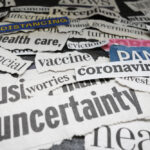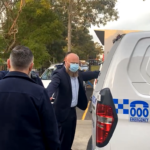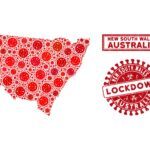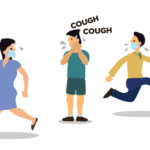NSW Government Cashes In on COVID Fines
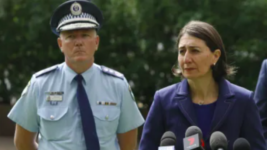
Millions of dollars in Covid fines have already been handed out in New South Wales, and increased penalties are now in force across our state – which is likely to see the figure spike.
3338 fines totalling $4,409,800 were issued for Covid-19 breaches between March 2020 and June 2021, 88% of which were for individuals.
But many believe it’s unlikely increased fines will have positive impact on the current situation, and could do more harm than good – pushing already mentally and financially vulnerable people past their breaking point.
Government’s answer: more restrictions, bigger fines and heavy-handed enforcement
There has been a lot of debate about whether giving New South Wales Police Commissioner Mick Fuller the responsibility for managing the situation is a good idea, given that Covid-19 is a health issue and he is not a health expert.
What we’ve seen in recent times is an increased number of arrests and bigger fines, but very little impact on actually curbing the spread, particularly of the Delta variant, as case numbers of which continue to rise.
But instead of addressing the issue, Premier Gladys Berejiklian continues to allow police to redraft the pandemic public health policy, implement a system of ever-increasing penalties and increasingly restrictive yet uncertain rules, and add 800 Australian Defence Force personnel to its on-the-street arsenal.
Under the new rules, fines for individuals have been increased five-fold, with the penalty for failing to comply with a public health order rising from $1000 to $5000.
This includes breaching orders to stay at home and stay within geographical limits, as well as lying on a permit or to a contract tracer.
The fine for breaching the two-person outdoor exercise rule has increased from $1000 to $3000.
A significant concern is that heavy fines have an inequitable impact on people who are already doing it tough financially, and that criminalising people by arresting and sending them to court compounds the difficulties people are facing.
Fines disproportionately impact on the poor
They disproportionately punish people who are currently without work, who are currently suffering income losses from having their businesses closed, or because their working hours have been reduced.
Even with well-meaning Government financial assistance (which many won’t qualify for) there are many people in New South Wales who are struggling to make ends meet right now.
In recent days NSW Police posted photos to social media showing ADF forces in Western Sydney handing out food parcels.
This is the very real impact of lockdowns on people who have a lower socio-economic status. In some cases, particularly with fines now so steep, some people will have to make very serious choices about money.
For those who get fined, perhaps that choice will come down to deciding whether to pay for the roof over their head, or the fine itself.
The other concern is that when faced with such significant fines in place, vulnerable people may end up being less cooperative with authorities out of fear of being penalised.
It can also potentially lead to these people ending up in the criminal justice system needlessly. Courts are already stretched to the limit, finding ways to deal with the backlog of cases that has been exacerbated by lockdowns.
Unscrupulous government
The Robodebt experience exposed the stress and anxiety that some people can suffer when it comes to owing the government money.
Revenue NSW figures show that 3338 fines totalling more than $4.4 million have been issued for Covid-19 breaches between March 2020 and June 2021. Eighty-eight percent of these were issued to individuals.
The figures also show that less than 25 per cent of the COVID penalty notices issued in NSW between January 1 2020 and February 24 2021 were paid in full.
Covid rules change quickly, and they differ from state-to-state. Many people are confused and doing the wrong thing can be a very costly mistake.
And yet, as we’ve seen time and again during the pandemic, those within the NSW Government or the NSW Police Force who constantly change the rules, communicate them poorly and apply them inconsistently, don’t take responsibility, nor are they held accountable for the misunderstandings they create.
But for the general public, ignorance is not an adequate defence.
Inconsistency and confusion
One of the areas of most concern for legal experts is that these public health regulations are unlike ‘normal’ laws in that they are not made with the full debate and scrutiny of the usual democratic law-making process.
As a result, they don’t have established legal interpretations and guidelines.
As an example, under state lockdown (the rules are slightly different for Greater Sydney and regional areas) people cannot leave home without a ‘reasonable excuse’.
While there is a published list of acceptable reasons to leave home on the NSW Health website, this rule is still ‘vague’ enough to be open to various conflicting interpretations. This potentially means that police, as well as the review team at Revenue NSW and also the courts could each take an entirely different view of what constitutes a ‘reasonable’ excuse.
Over the course of the pandemic, people have been arrested or fined while sitting alone in a car, sitting alone on a park bench, or for not wearing a mask, yet having a medical condition which prevented them from doing so.
We’ve also seen instances where police have behaved aggressively, with unnecessary force, and in ways which are in direct contrast to the rule of law that people are ‘innocent until proven guilty.’
There are also many instances where innocent people have been fined because police are taking a tough enforcement-based approach, instead of a collaborative, community-policing approach.
And this too has its own problems because it creates a general mistrust in authorities at a time when it is needed the most.


